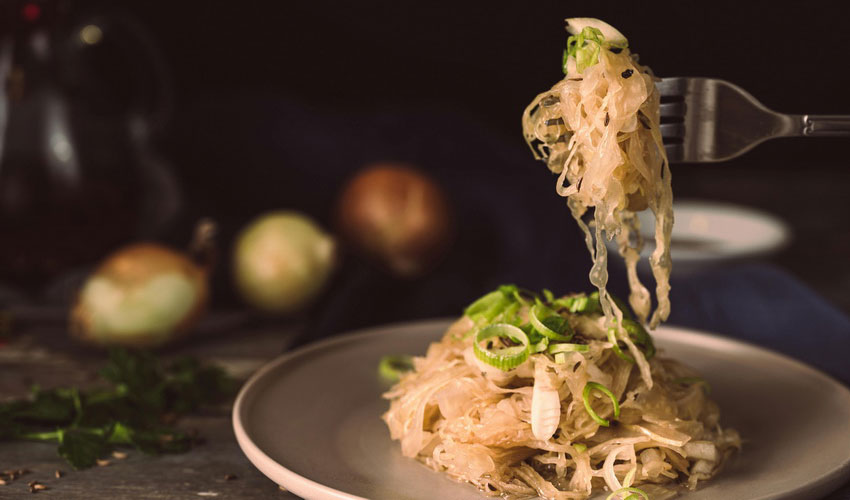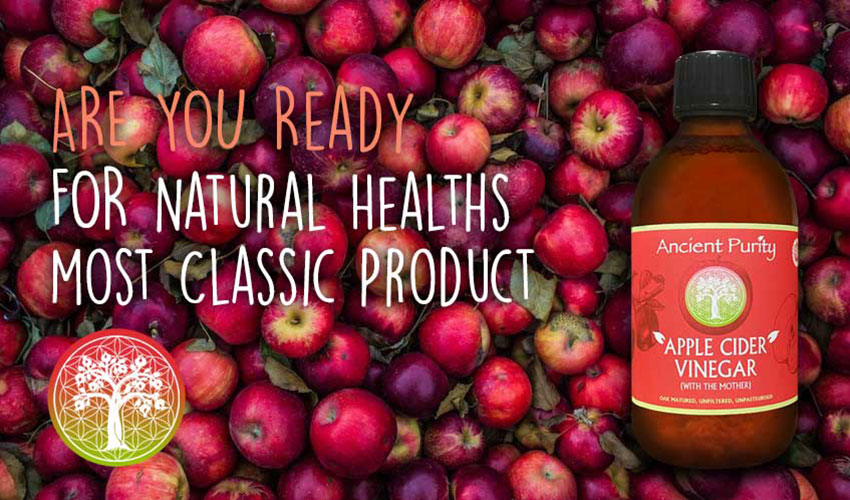Fermented Foods For The Human Body
I recall living in the Southern part of the Netherlands, a mere 4 miles away from the German border. I still clearly remember embarking on regular trips to the nearest German town purchasing their famous Sauerkraut. The tangy delight of this fermented cabbage dish was a staple in our household. Fast forward to my current residence in Thailand, and my taste buds have been enchanted by the spicy allure of Korean Kimchi. The transition from one beloved fermented food to another has been an interesting journey of discovery.
Fermented foods like kimchi and yogurt have earned a reputation for their range of health benefits. Yet, beyond these well-known examples, there exists a vast array of fermented delicacies that grace our tables daily, oftentimes without us even realising their fermented origins. Take, for instance, the humble coffee, soy sauce, indulgent chocolate, and exquisite red wine, all products of fermentation. However, before you indulge recklessly in these treats under the guise of fostering good health, there is a crucial distinction to bear in mind.

Fermented foods can be broadly categorised into two types: those fermented primarily to enhance flavour, and those containing live probiotic cultures that offer tangible health benefits. It's essential to discern between the two classifications. Coffee and milk chocolate, although boasting some health perks, fall under the former category as they generally lack probiotics. On the other hand, dynamic delights like kimchi and sauerkraut, with their active probiotic cultures, fall within the latter category, promising a nourishing impact on your well-being. If you want to know more about Kimchi, I recently penned an article titled: Science-Backed Health Benefits of Kimchi.
The golden rule when seeking out health-enhancing fermented foods is to gravitate towards those that remain minimally processed, exuding a distinct fermented essence. Look no further than probiotic-rich options like (Greek) yogurt, miso, artisanal sourdough bread, tempeh, and select cheeses for a bounty of beneficial live cultures to support your gut health. Embrace the world of fermented foods with open arms, savouring the multifaceted flavours while nurturing your body from within.
Fermentation Explained
The art of food fermentation has been practiced for millennia, initially as a means of preserving perishable foods before the era of modern refrigeration. By harnessing the power of microorganisms like lactic acid bacteria, ancient civilisations were able to extend the shelf life of vegetables while retaining their essential nutrients. It wasn't until relatively recently that scientists began to dig deeper into the incredible health benefits of fermented foods. During the fermentation process, natural sugars in food are broken down by these microorganisms, transforming the food's structure and flavour. Essentially, fermentation serves as a form of pre-digestion, making nutrients more readily available for our bodies to absorb. While the concept of letting bacteria "digest" our food may seem off-putting at first, the end result is a delicious transformation that is not only palatable but also incredibly beneficial for our gut health. One of the key advantages of fermentation is its ability to convert hard-to-digest foods, such as fibrous vegetables, into easily tolerated products. Take sauerkraut, for example, which is made by fermenting white cabbage. Through this process, the cabbage is rendered more digestible and nutrient-dense, making it not only easier on our digestive systems but also packed with probiotics that support overall gut health. So, the next time you enjoy a tangy bite of fermented food, remember that you're not just savouring a culinary delight as you're also nourishing your body from within.
Fermented Food Supports your Gut Health
Lactic acid bacteria, found in fermented foods such as kimchi and sauerkraut, should be a staple in your diet for their ability to promote gut health. These living microorganisms, along with other health-promoting substances, play a crucial role in maintaining a healthy intestinal flora. A recent study conducted by King’s College in London in 2019 highlighted the positive impact of fermented foods on intestinal health. The probiotics and bioactive compounds produced during the fermentation process contribute to a healthy gut environment. The importance of maintaining a healthy gut cannot be overstated, as it is home to trillions of bacteria that are essential for not only digestion, but also for the immune system, mood regulation, and even body weight management. By incorporating fermented foods rich in lactic acid bacteria into your diet, you are taking proactive steps towards supporting your overall health and well-being. So next time you're planning your meals, remember to include some kimchi or sauerkraut for a happy gut.

Fermented Food Bolster your Immune System
The connection between the gut and the immune system has long been recognised, with approximately 70% of the immune system residing in the intestines. This close relationship underscores the importance of maintaining a healthy gut, as it can directly influence the strength of one's immune response. Kimchi and other fermented foods have gained attention for their ability to support a robust immune system, thanks to their rich probiotic content. Beyond probiotics, fermented foods like tempeh also provide a wealth of vitamins and antioxidants that further bolster immune function. Of particular note is the abundance of vitamin C in kimchi, a key nutrient known for its immune-boosting properties. By incorporating fermented foods into your diet, you can potentially enhance your body's defences against common illnesses like colds and flu, especially during the harsh winter months when immunity may be compromised. Consuming these traditional foods not only offers a delicious culinary experience but also serves as a proactive measure to safeguard your health.
Fermented Foods Enhance Your Metabolism
A sensational 2023 study from Turkey has revealed that incorporating fermented foods like kimchi, kefir, miso, and sauerkraut into your diet could be a powerful ally in the fight against inflammation. Not only do these probiotic-rich foods promote a healthy gut flora, but they have also been linked to a decreased risk of metabolic issues, type 2 diabetes, and heart disease. The benefits of consuming fermented foods go beyond just gut health as research indicates that the probiotics present in these foods may have a positive impact on metabolism as well. By helping to stabilise blood sugar levels and promote fat burning, probiotics can play a key role in regulating your body's metabolic processes. In fact, a study conducted in Korea showed that people who incorporated kimchi into their daily diet saw not only a significant reduction in body fat percentage and blood pressure, but also reported improvements in digestion and an overall sense of well-being. This suggests that fermented foods may have far-reaching effects on both physical and mental health.
The Diversity of Fermented Foods
The impact of fermented foods on the body has become a hotly debated topic, with the scientific community still in search of a clear understanding of the underlying mechanisms at play. While researchers continue to investigate, one prevailing hypothesis suggests that it is not just the individual bacteria present in fermented foods that are beneficial, but rather the diverse array of microorganisms that contribute to overall health. In essence, it is likely that the synergistic effect of these various bacteria working in harmony is what yields health benefits. As such, there is a pressing need for further research to uncover the full extent of how fermented foods affect the body and promote overall well-being.

Top 10 – Healthiest Fermented Foods
- Apple Cider Vinegar: Experience the power of nature with Apple Cider Vinegar. Crafted by crushing apples and allowing time for yeasts to work their magic, this unfiltered elixir is packed with benefits. What sets it apart is the presence of the 'mother', which is a potent mix of proteins, enzymes, and friendly bacteria that contribute to its cloudy appearance in the bottle. Here You Can Purchase Unpasteurised Raw Unfiltered Apple Cider Vinegar.
- Cheese (including: mozzarella, camembert, aged cheddar, Gouda and parmesan): When it comes to delivering probiotics to the gut, not all options are created equal. While probiotic supplements are commonly touted for their benefits, some cheese varieties actually outperform them in effectively delivering intact beneficial bacteria. Mozzarella, a soft, fresh Italian cheese, is a prime example of this phenomenon. However, it's important to note that the levels of beneficial microbes in mozzarella can vary depending on the source of the milk used.
- Kefir: Kefir is a true powerhouse when it comes to beneficial bacteria and yeast that surpass what is found in yogurt. These dynamic microorganisms work together to produce a myriad of bioactive compounds that have a profound impact on our overall health. From promoting optimal digestion to effectively lowering cholesterol levels, the diverse composition of Kefir sets it apart as a truly superior option for those seeking to enhance their well-being. In essence, Kefir goes above and beyond in delivering a spectrum of wellness benefits that simply cannot be matched by traditional yogurt.
- Kimchi: Kimchi, a beloved concoction of fermented vegetables and spices, holds a special place in my heart as my ultimate favourite. Originating from Korea, this traditional dish has garnered a global following for its unique and vibrant flavours. The fermentation process, primarily facilitated by lactobacillus bacteria, not only adds a tangy kick to the taste but also elevates the nutritional profile of Kimchi. The presence of these beneficial bacteria leads to the synthesis of essential vitamins and minerals, enriching this already nutrient-dense food. Furthermore, the fermentation process helps to break down and deactivate potentially harmful compounds, making Kimchi not only delicious but also a healthier choice for those seeking a flavourful and nutritious addition to their diet. As Kimchi continues to captivate taste buds around the world, its cultural significance and health benefits reinforce its position as a beloved culinary gem deserving of praise and recognition.
- Kombucha: Kombucha is a unique and healthful beverage that combines the sweetness of tea with the tanginess of fermentation. This fizzy elixir is created using a mysterious organism known as a ‘scoby’, which stands for ‘symbiotic culture of bacteria and yeasts’. Through the process of fermentation, the scoby transforms sugar into ethanol and acetic acid, giving Kombucha its distinctive sour flavour profile. In addition to its delicious taste, Kombucha is also packed with essential vitamins and minerals, including vitamin C, B1, B6, and B12. These nutrients are produced as a result of the yeast breaking down sugars in the tea during fermentation. It's important to note that the exact levels of vitamins and minerals can vary depending on the specific Kombucha product. Overall, Kombucha offers a refreshing and beneficial alternative to traditional sodas and sugary drinks. With its natural fermentation process and nutrient-rich content, this fermented tea beverage is a tasty and healthy addition to any diet.
- Miso: Miso paste, a staple in Japanese and Chinese culinary traditions, is a powerhouse of nutrients. Made from a combination of soybeans and grains that are meticulously fermented by koji enzymes and beneficial bacteria, miso is not only yummy but also incredibly healthful. Packed with gut-friendly bacteria, protein, vitamins E and K, and isoflavone plant compounds, Miso offers a range of benefits that go beyond mere taste. Studies have suggested that these isoflavones may even have anti-cancer properties, making Miso a valuable addition to any diet aimed at promoting overall health and well-being. So go ahead, add a dollop of Miso paste to your next dish and experience the delicious and nourishing benefits it has to offer.
- Natto: Natto, a cherished dish in Japanese cuisine, offers a powerhouse of health benefits due to its high concentration of beneficial bacteria. Typically enjoyed as a breakfast staple, this fermented soybean delicacy boasts remarkable gut-boosting properties. Surprisingly, Natto contains a staggering 100 times more vitamin K2 than certain types of cheese, making it a valuable ally for promoting strong bone health, particularly for individuals vulnerable to bone-related issues. It's important to note that if you are currently taking blood thinning medications like warfarin, you should seek guidance from your GP or a certified dietitian before incorporating vitamin K-rich foods such as Natto into your diet regimen. Your natural health professionals can provide essential insights to ensure the seamless integration of these nutritious elements into your overall well-being plan.
- Olives: Olives stand as a beloved choice among fermented foods enthusiasts worldwide. Through their unique saltwater fermentation process, these delectable fruits are teeming with lactobacillus, a renowned powerhouse in the world of beneficial gut bacteria.
- Tempeh: Tempeh, a sought-after protein source, is a time-honoured soy-based product crafted from cooked, fermented soybeans. Bursting with bone-nourishing minerals such as calcium, magnesium, and phosphorus, tempeh also boasts a remarkable advantage as its fermentation process effectively neutralises anti-nutrients. These compounds, known to impede the absorption of essential minerals, are dismantled during fermentation, rendering foods like Tempeh not only gentle on the digestive system but also ensuring optimal absorption of their valuable nutrients.
- Sauerkraut: Originating over 2,000 years ago in China (Yes! China, not Germany) sauerkraut, or 'sour cabbage,' is essentially cabbage that has undergone a transformative fermentation process. This age-old technique kick-starts the growth of beneficial microbes, turning sauerkraut into a powerhouse of health benefits. Packed with heart-friendly elements, fermented cabbage is not only abundant in fibre but also teeming with good bacteria crucial for regulating cholesterol levels. Moreover, its potassium-rich composition and microbial diversity are believed to play a pivotal role in maintaining healthy blood pressure. It is one of the most popular national dishes in Germany.

''Fermentation is a way of extending the harvest.'' - Sandor Ellix Katz, Wild Fermentation: The Art of Fermenting Foods






















